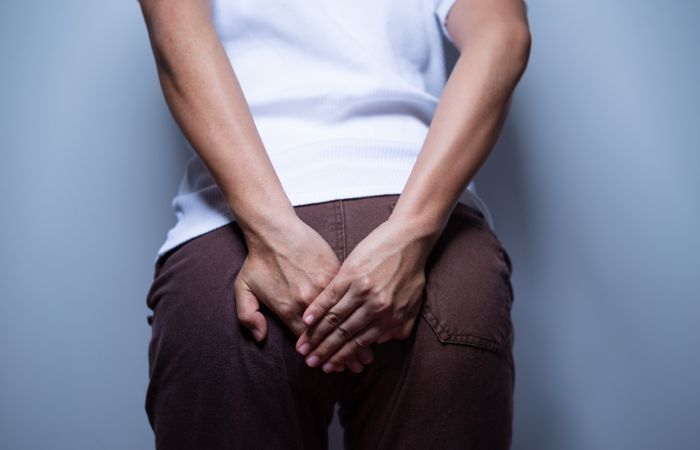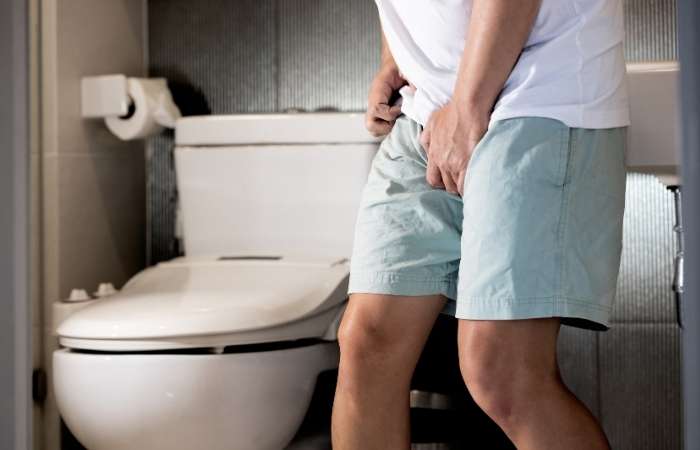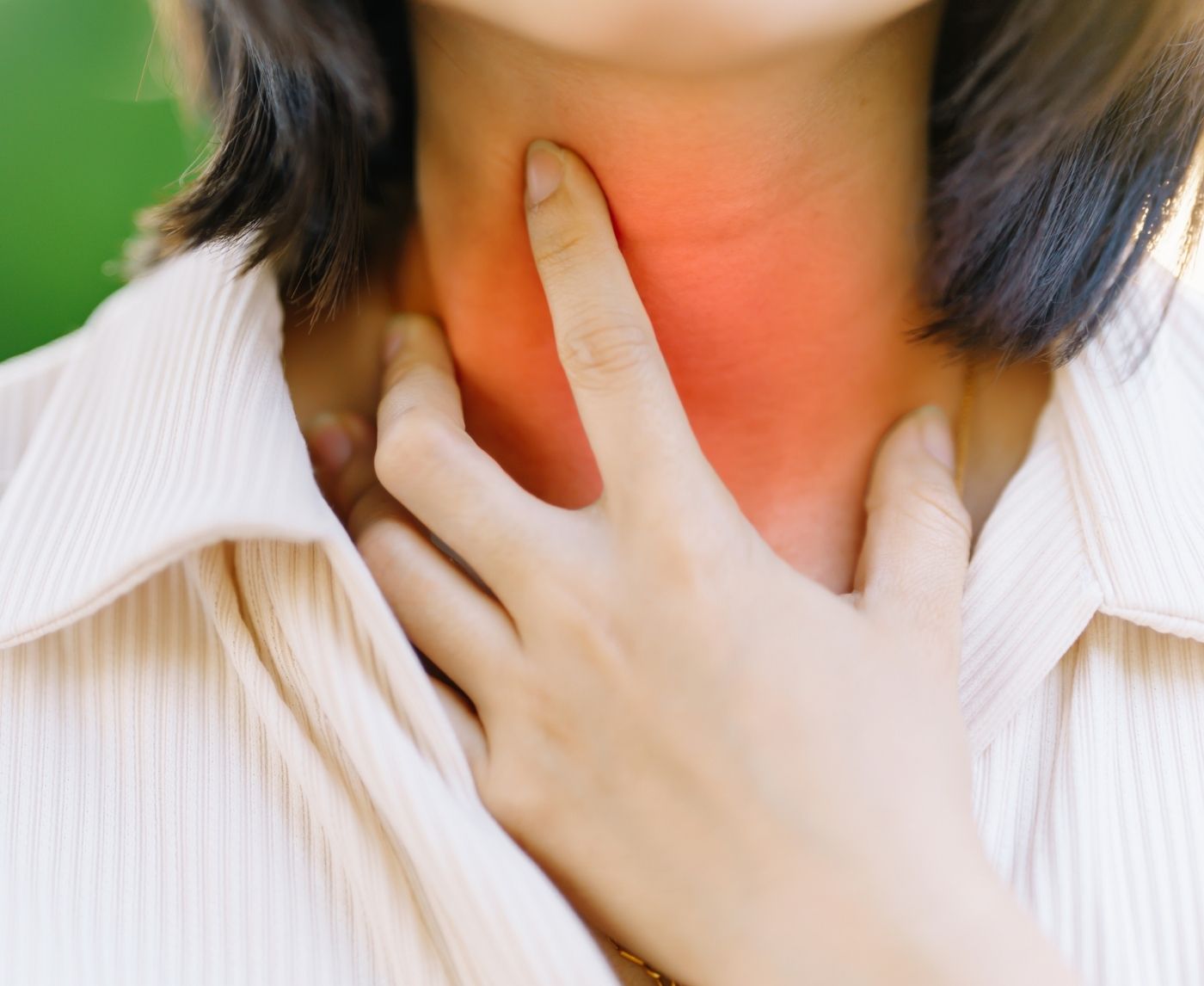You Can Get Chlamydia in the Mouth
Quick Answer: Yes, some STDs can be transmitted through fecal-oral contact, including Hepatitis A, Herpes, and certain bacterial infections. Rimming, anal play, or oral-anal contact without protection increases that risk, especially if hygiene or barriers are skipped.
Why This Guide Matters More Than You Think
Most conversations about STDs center around unprotected vaginal or anal sex, but oral-anal sex, rimming, or even light ass play rarely get the same attention. Yet the risks tied to these acts are real. People exploring queer sex, kink, or even just trying new things with a trusted partner may not realize how certain STIs like Hepatitis A or Shigella can be passed through fecal particles.
One Reddit user shared: “We’d been dating for months, and he was the first person I felt safe enough to try rimming with. I never thought I’d be Googling ‘poop STD risk’ two days later.” Sound familiar? You’re not overreacting, just acting on your instinct to be safe. That’s always a good thing. Testing, barrier use, and hygiene aren’t about paranoia, they’re about power.
This guide breaks it down. We’ll talk about the infections that can spread via fecal-oral routes, how different sex acts factor in, which signs to watch for, and, most importantly, how to keep it sexy without risking your health. If you’ve ever thought, “Wait, is that how I could get sick?”, this is for you.

People are also reading: What Happens If You Share a Vibrator? STD Risks Explained
What Counts as Fecal-Oral Transmission, Really?
Fecal-oral transmission refers to the passage of microscopic (or sometimes visible) traces of fecal matter from one person’s body to another’s mouth. This can happen during sex, especially oral-anal contact, but also via fingers, toys, or mouths that come into contact with the anus and then touch another person’s mouth without proper cleaning. The CDC notes that this is a primary mode of spreading Hepatitis A, and it’s not limited to toilet-related scenarios.
Let’s be clear: this doesn’t mean you need to ingest stool to be at risk. Infections can be spread by tiny, invisible traces that remain on skin, tongues, or surfaces. This is why hygiene matters, and why barrier methods (like dental dams) aren’t just for classroom demos, they can actually make a difference in real sex lives.
Some of the highest-risk situations for fecal-oral transmission include:
Figure 1. Common scenarios where fecal-oral transmission risk increases during sexual activity.
The STDs and Infections That Can Spread This Way
However, we are not saying that all cases of oral-anal sex will transmit an STD. But we do know that certain STDs are transmitted in this fashion, and we want to ensure that you know what they are. According to reputable sources of research on the subject, the follow are some of the primary offenders:
- Hepatitis A: Spread through fecal matter. Causes nausea, vomiting, jaundice, and fatigue. Often linked to rimming or poor handwashing after anal play.
- Shigella: A bacterial infection that causes intense diarrhea and stomach cramps. Found in feces and highly contagious during rimming.
- Herpes (HSV-1 and HSV-2): While not spread via fecal material, if sores are present in the anal or oral region, they can spread through oral-anal contact.
- Giardia & E. coli: These are gut bacteria or parasites that aren’t technically STDs, but they can be transmitted sexually through fecal contact. Symptoms range from gas and bloating to diarrhea and dehydration.
- Gonorrhea and chlamydia (oral or rectal strains): These can spread via oral or anal sex if one site is infected and comes in contact with the other.
It’s not just “gross” bacteria we’re talking about, it’s legit public health issues that can affect your liver, your gut, and your entire system. But the fix isn’t fear. It’s information, prevention, and accessible testing.
So... Can You Actually Get an STD from Poop During Sex?
Here’s the clinical truth: it’s not the feces itself, it’s the organisms hiding inside. When stool contains viruses, bacteria, or parasites, those can enter your mouth, throat, or gut during sex. While this sounds extreme, it happens more often than people think, especially when oral-anal play, anal sex, or uncleaned toys are part of the encounter.
One man shared anonymously on a queer health forum: “I thought we were careful, but a week later I was cramping and couldn’t eat. Turns out I picked up Giardia from oral play.” It wasn’t a hygiene fail or recklessness, it was just the reality of how certain pathogens operate. This doesn’t mean don’t have fun, it means understand what’s at stake and how to stay ahead of it.
It’s also important to remember that not all infections will present immediately. Many will have an incubation period. This means you could contract the infection but not realize you are sick for days or weeks.
Protecting Yourself Without Killing the Mood
Sex can stay hot and safe. You don’t need to bring a hazmat suit into the bedroom to reduce your risk of fecal-oral transmission. You just need awareness, hygiene, and communication. Here’s how real people are keeping their sex lives wild and their risk low:
- Use a dental dam or cut-open condom during rimming. It's a small sheet that acts as a barrier between the mouth and the anus. Flavored versions exist, and they're not as clinical as they sound, especially if you pair them with lube.
- Clean up first. A quick shower or wipe-down beforehand reduces bacteria. If there's been anal sex, wait before switching to oral, or clean thoroughly between acts. Same goes for fingers and toys.
- Get tested regularly. Especially if you're in an open relationship or engaging in high-contact acts. Rapid tests make this simple, results in 15 minutes without the awkward clinic visit.
- Watch for symptoms, but don’t rely on them. Many infections, including Hepatitis A and oral chlamydia, can be asymptomatic at first. That’s why routine screening is your best friend.
Still not sure if you should be worried after an encounter? Peace of mind is just one test away.
“But I Didn’t Swallow Anything…” Does That Matter?
This is one of the most common follow-up questions after an anxious Google spiral. The short answer: you don’t have to swallow to be at risk. In fact, even just getting traces of contaminated matter in your mouth or on your lips can transmit certain pathogens. Healthline confirms that transmission happens from even small amounts of contact, not just ingestion.
Your mouth, gums, and throat are full of mucous membranes. These are easy entry points for bacteria and viruses. The same applies to micro-tears or abrasions that can happen during rough play or from dental flossing before sex. That’s why it’s often safer to avoid oral-anal contact right after brushing or flossing, tiny cuts can give bacteria a highway straight into your bloodstream.
Also, don’t underestimate what “microscopic” means. You might not taste, smell, or see anything, but that doesn’t mean pathogens aren’t present. That’s the whole reason barrier methods and handwashing are emphasized, not because people are dirty, but because bacteria are sneaky.
Let’s Talk About Shame, and Why We Leave It Behind
If you’re reading this and feeling grossed out or ashamed, take a breath. None of this makes you dirty, irresponsible, or weird. It makes you curious and conscientious, someone who wants to enjoy their sex life without unwanted consequences. And that’s powerful.
STD stigma feeds silence, and silence feeds outbreaks. But when we talk openly about how infections spread, not just through “traditional” sex but through real-world practices like rimming, analingus, or sharing toys, we take back control. The CDC affirms that men who have sex with men face higher risks specifically due to practices that increase fecal-oral exposure. But these facts are meant to guide, not shame.
So whether you're exploring new dynamics, reconnecting with an old partner, or just learning something for the future, you're doing the right thing by being here. Your body deserves both pleasure and protection, and you can have both.
Can You Get Sick Even If It Was Just Once?
This is another real-world question we hear all the time. “It was just one time, we didn’t even do much.” And sure, one-off exposure reduces risk, but it doesn’t erase it. Certain infections, like Hepatitis A or Shigella, require very little exposure to take hold. The dose of bacteria needed to cause illness can be microscopic, especially if your immune system is already dealing with something else.
Let’s say you had oral-anal contact with someone whose hygiene wasn’t ideal. Or maybe they had a stomach bug they didn’t mention, or a recent Hep A diagnosis they didn’t know about. One encounter, one lick, one slip, and it’s possible. Low risk doesn’t mean zero risk. That’s why it’s important to pay attention to your body after any exposure, no matter how minor it felt in the moment.
And if you’re wondering whether symptoms like diarrhea, nausea, or fever are a “normal bug” or something more? That’s your sign to test. You can test for Hepatitis A and other STDs discreetly with a trusted at-home STD kit, no clinic visit required.

People are also reading: STIs Are Surging in Louisiana, And Lawmakers Want to Criminalize the Spread
Fecal-Oral Risks in Queer, Kink, and Open Relationships
We need to be honest about who’s often at the greatest risk, not because of identity, but because of openness. Queer folks, kink communities, and ethically non-monogamous (ENM) circles are more likely to engage in oral-anal sex, toy sharing, analingus, or fisting. These acts are all part of a healthy, consensual, joy-filled sex life, but they come with unique health considerations.
The CDC and multiple epidemiological studies have documented outbreaks of Shigella and Hepatitis A in communities of gay and bisexual men, especially in urban areas with tight-knit sexual networks. But again: this isn’t about blame, it’s about knowledge. Knowing how infections spread lets you play smarter, not smaller.
If you’re someone who attends sex parties, practices kink, or is part of the leather or BDSM community, consider these extra safety steps:
Figure 2. Safer sex practices tailored to reduce fecal-oral transmission during oral-anal or kink play.
What If You’re Already Feeling Off?
If you're experiencing symptoms like diarrhea, upset stomach, anal itching, sore throat, or swollen glands after a sexual encounter that may have involved fecal-oral contact, it’s time to listen to your body. While these can be from a lot of causes, including food poisoning or a standard stomach bug, they can also be signs of something sexually transmitted or gastrointestinal like Giardia, Hepatitis A, or Shigella.
Here's the hard part: many providers still don't ask about oral-anal contact when diagnosing infections. That means you have to be your own advocate. Don’t be afraid to say, “I had oral-anal sex recently, and now I’m having these symptoms.” You can also skip the awkward conversation entirely and test at home with a combo kit that screens for the most likely STDs passed during oral and anal contact.
Remember: these infections are treatable. What matters most is catching them early so you don’t pass them on or suffer worse symptoms down the line. A few minutes of testing can save weeks of discomfort.
FAQs
1. Can you really get an STD from poop?
Yep, and it’s more common than people realize. It’s not the poop itself, it’s what might be in it. Hepatitis A, Shigella, and other gut bugs can travel through tiny traces during oral-anal sex (rimming). You don’t need a full-on mess for it to happen. Microscopic bits are enough.
2. What if I didn’t swallow anything, am I still at risk?
Unfortunately, yes. Even if you didn’t “swallow” anything, your lips, tongue, and mouth are lined with mucous membranes that act like open doors to certain pathogens. Just touching the area with your mouth can be enough to let something in, especially if you’ve recently flossed or have small cuts in your mouth.
3. Is it only a risk if there was visible feces?
Not even close. Most fecal-oral transmission happens when nothing looks off. Invisible traces can hang around on skin, toys, towels, or even hands that went from backdoor to face without a solid wash in between. You won’t see it, but your gut might feel it a few days later.
4. I did it once. Should I be freaking out?
No need to panic. One-time exposure is usually lower risk, but it’s not zero. If you feel sick (nausea, fever, stomach cramps) or just want peace of mind, a rapid test can rule out the big stuff. Think of it as insurance for your nervous system.
5. Are some people more likely to catch something this way?
Yes. People with weaker immune systems, including those with HIV, those going through chemo, or folks who’ve recently had stomach bugs or antibiotics, are more susceptible. Also, people who engage in oral-anal contact more regularly, such as within queer or kink communities, may have higher exposure rates, which makes regular testing even smarter.
6. What infections show up after rimming?
The big names? Hepatitis A, Shigella, Giardia, E. coli, and sometimes Herpes (if sores are involved). These aren’t always classified as “STDs,” but they are transmitted sexually. Some affect the liver, others your gut. Either way, nobody wants that kind of surprise after a good night.
7. Is a dental dam actually effective, or just a mood killer?
Dental dams are kind of the unsung hero of oral safety. They might not scream sexy at first, but they absolutely cut risk. Add some lube to enhance the feel, choose a flavored one if you like, and turn protection into foreplay. No shame in staying hot and safe.
8. How soon after should I test?
Depends on what you’re worried about. Hep A can take 15–50 days to show symptoms or antibodies. Bacterial stuff like Shigella shows up sooner, 1 to 3 days. If you feel off, test immediately. If not, consider testing within 1–2 weeks just to be sure.
9. Do women or AFAB people need to worry about this too?
Absolutely. Anyone with a mouth and a butthole is part of the risk equation. Oral-anal contact doesn’t care about gender. If your mouth touches an area with potential pathogens, or vice versa, you’re in the same boat. Testing and hygiene are for everyone.
10. I’m too embarrassed to tell my doctor. Can I just test at home?
You’re not alone there. Luckily, yes, you can use at-home STD kits that screen for common infections tied to oral, anal, and fecal contact. It’s private, fast, and doesn’t require any awkward conversations. Unless you want to brag about how responsible you are.
You Deserve Answers, Not Shame
Whether it was your first time exploring rimming, part of your regular sex life, or an experience you’re now questioning, know this: asking questions about poop and STDs doesn’t make you dirty. It makes you smart. Sexual health isn’t just about condoms and pregnancy, it’s about everything your body touches, tastes, and trusts.
Protecting yourself starts with information. That’s what you just got. Now take the next step.
How We Sourced This Article: We combined current guidance from leading medical organizations with peer-reviewed research and lived-experience reporting to make this guide practical, compassionate, and accurate. In total, around fifteen references informed the writing; below, we’ve highlighted some of the most relevant and reader-friendly sources.
Sources
1. About STI Risk and Oral Sex — CDC
2. Sexually Transmitted Infections Treatment Guidelines, 2021 — MMWR
3. Oral sexual exposures can lead to viable rectal Chlamydia — PMC
5. Sexually Transmitted Parasitic Diseases — PMC
About the Author
Dr. F. David, MD is a board-certified infectious disease specialist focused on STI prevention, diagnosis, and treatment. He blends clinical precision with a no-nonsense, sex-positive approach and is committed to expanding access for readers in both urban and off-grid settings.
Reviewed by: A. Martin, MPH | Last medically reviewed: November 2025
This article is for informational purposes and does not replace medical advice.







